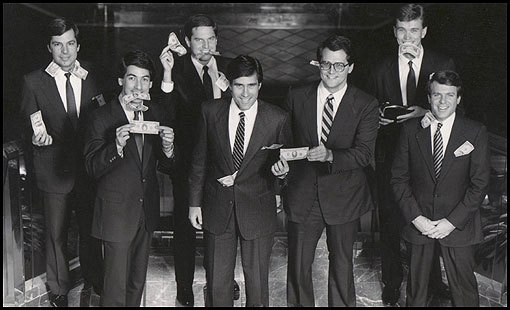The Lost Art of Thinking Before You Act

What’s the Big Idea?
Philosopher Slavoj Žižek is fundamentally anti-capitalist, and yet, the man who describes himself as a “complicated Marxist” also expresses palpable irritation at the idea that capitalists are nothing more than egomaniacal psychopaths. In a recent interview with Big Think, he told us that although he’s highly critical of capitalism in his work, when asked about it in public, he’s tempted to detail all the things that are great about it.
Watch the interview:
|
|
Political critiques that don’t account for the passion of the individual capitalist are flawed, he says, because capitalism is as much an ethical as it is an economic system. “It’s not true when people attack capitalists as egotists. ‘They don’t care.’ No! An ideal capitalist is someone who is ready, again, to stake his life, to risk everything just so that production grows, profit grows, capital circulates. His personal or her personal happiness is totally subordinate to this. This is what I think Walter Benjamin, the great Frankfurt School thinker, had in mind when he said capitalism is a form of religion.”
The guiding principle of free market economic theorists is that people are motivated purely by the pursuit of their own rational self-interests. But Žižek posits another theory: that the long work hours and obsession with growth that are the hallmarks of twentieth-century capitalism have nothing to do with personal happiness. There are, afterall, easier ways to satiate a taste for the finer things in life than by building a company from the ground up.
So is he still sympathetic to the Occupy Wall Street movement? Yes – as a signal of what’s to come, not as a genuine leftist movement. “It’s easy to be just formally anti-capitalist, but what does it really mean?… they don’t have an answer, and neither do I.” What he does know: the miracle of capitalism is that it’s rotting in decay, but the more it’s rotting, the more it thrives.
The contradictions are intentional. Žižek’s philosophical hero (and the subject of a recent 1,000 page exegesis) is Hegel – the 19th century German idealist who believed that the world is comprised of contradictions, that knowledge itself is a process in which many paradoxes interact and are synthesized into a unified whole.
What’s the Significance?
This worldview informs his strong preference for the international over the local. He’s ambivalent about the effectiveness of small-scale protests and incremental reforms because he believes that the world’s problems necessitate organization and action on a global level.
Local advocacy certainly makes us feel like we’re doing something, but are we? Do personal habits like buying organic groceries and turning the tap off while we’re brushing our teeth have any actual impact on economic and political structures, or are they merely symbolic expressions of our own virtue?
The framing of a collective challenge as a moral issue undermines our ability to find rational, thoughtful solutions, says Žižek. Activists who talk about climate change as if it is a moral imperative de-emphasize the fact that it is also a major policy issue.
Likewise, the argument that capitalists are greedy or evil undermines the case being made the Occupy Wall Street movement. What leftists and other anti-capitalists should be doing is not only articulating that something is wrong, but also thinking about what can be done about it.
His advice to those advocating for change, part II:
I don’t have simple answers. Two things — a) Start thinking. Don’t get caught into this pseudo-activist pressure of “Do something. Let’s do it… [there’s no] time to think”… Maybe today we should say, “In the twentieth century, we tried to change the world too quickly.” The time is [here] to interpret again, to start thinking.
Second thing, I’m not saying people are suffering, enduring horrible things, that we should just sit and think, but we should be very careful what we do.





